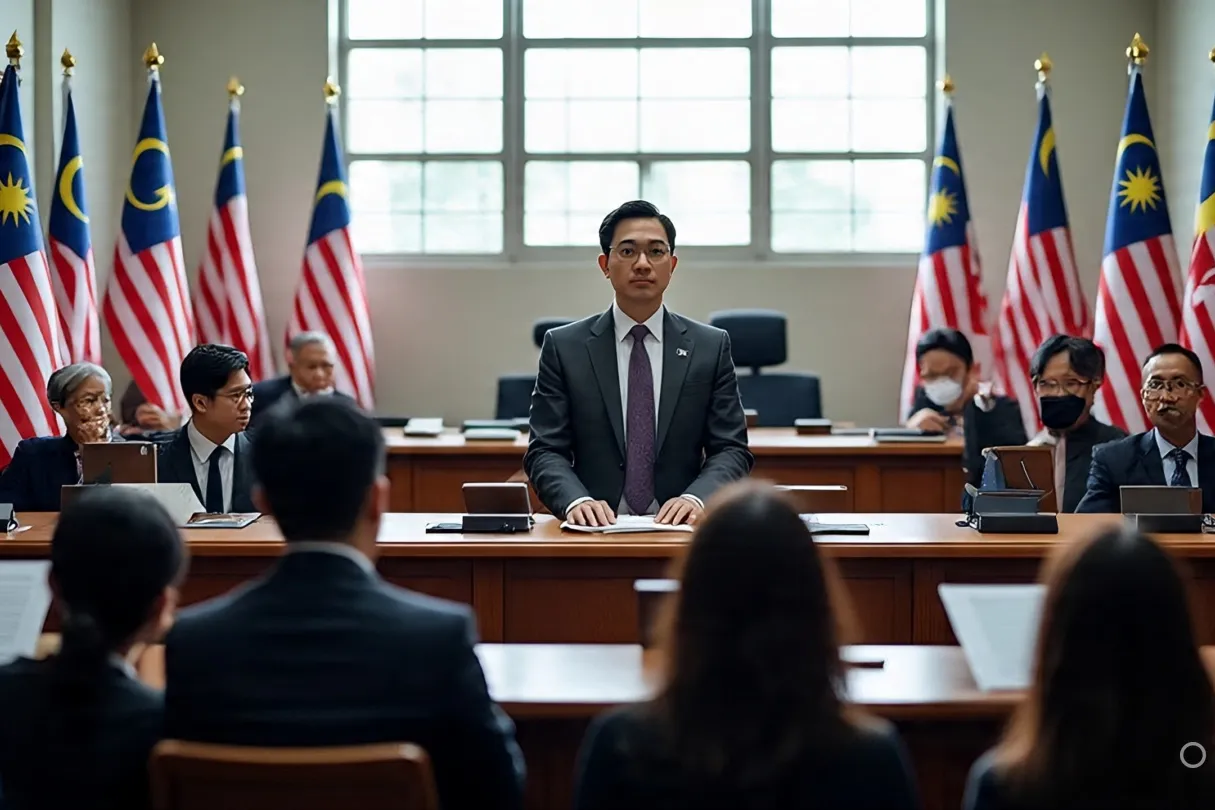📜 The colonial roots of a modern controversy
The Sedition Act in Malaysia is one of the oldest laws still in use today, dating back to 1948 when British colonial authorities enacted it to suppress communist uprisings and leftist publications. Its original purpose was to quell unrest and prevent any threat to British rule, particularly during the Malayan Emergency.
- 📜 The colonial roots of a modern controversy
- 🔍 Modern-day applications: who gets targeted?
- ⚖️ Legal justifications vs. human rights criticism
- 🧠 Case studies: where speech met the law
- 🗳️ Free speech or selective enforcement?
- 🧩 The larger pattern: lawfare in Malaysian politics
- 📣 The government’s view: stability above all
- 🧭 What it means for Malaysia’s future
- 🔍 Truth, transparency, and national discourse
The law criminalizes speech that incites hatred against the government, promotes ill-will between races, or questions sensitive topics like the monarchy and special rights of Malays. However, its wording is vague—terms like “seditious tendency” are open to wide interpretation.
Even after Malaysia gained independence in 1957, the Sedition Act remained intact. Successive governments have defended it as a necessary measure to preserve national unity. But critics argue it has become a powerful weapon for political suppression, particularly in moments of dissent.
🔍 Modern-day applications: who gets targeted?
In recent decades, the Sedition Act has been invoked against a wide range of individuals—politicians, journalists, academics, students, and everyday citizens.
🔹 In 2014, law professor Azmi Sharom was charged for expressing an academic opinion about the Perak constitutional crisis.
🔹 Cartoonist Zunar faced multiple charges for criticizing government leaders through his political cartoons.
🔹 Opposition politicians like Rafizi Ramli, Teresa Kok, and others have also been investigated or charged under the Act for speeches, social media posts, or press statements.
🔹 Activists have been questioned for organizing rallies, sharing opinion pieces, or participating in protests deemed “seditious.”
While governments have shifted—from Barisan Nasional to Pakatan Harapan and back—the Sedition Act remains. Attempts to repeal or reform it have consistently stalled, suggesting that those in power, regardless of party, see its utility.
⚖️ Legal justifications vs. human rights criticism
The official position on the Sedition Act is that it maintains peace in a multicultural society. Authorities argue that inflammatory speech—especially on race, religion, or royalty—could trigger unrest in Malaysia’s fragile social fabric.
But international human rights groups disagree:
- 🧾 SUHAKAM (Human Rights Commission of Malaysia) has repeatedly urged the government to repeal or replace the Act, citing abuse and chilling effects on free expression.
- 🗣️ Amnesty International labeled it a “blunt instrument” used to stifle criticism.
- 🏛️ The Malaysian Bar has argued that the Act violates the Federal Constitution’s guarantee of free speech under Article 10.
Many legal scholars say there are already adequate laws to address hate speech and public disorder—making the Sedition Act redundant and dangerous.
🧠 Case studies: where speech met the law
Below are a few high-profile cases that reveal how the Sedition Act functions in practice:
| Name | Year | Reason for Charge | Outcome |
|---|---|---|---|
| Azmi Sharom | 2014 | Academic opinion on constitutional law | Case dropped in 2016 |
| Zunar | 2015–2017 | Cartoons and tweets about Najib’s administration | Charges dropped after 2018 government change |
| Teresa Kok | 2014 | Satirical video seen as insulting Malay culture | Investigated but not charged |
| Fahmi Reza | 2021 | Satirical image of Malaysian monarch | Detained, released on bail |
These cases show a trend: criticism of authority—particularly of royalty or ruling coalitions—often draws swift legal response.
🗳️ Free speech or selective enforcement?
One major concern among critics is that the Sedition Act is applied unevenly. Government-aligned voices who make inflammatory remarks often go unpunished, while opposition figures and dissenters face full legal force.
This selectivity has fueled accusations that the Act is less about national unity and more about silencing dissent. It deters whistleblowers, investigative journalism, and academic critique—creating a climate of fear where many choose self-censorship over confrontation.
📌 In a 2020 survey by Merdeka Center, nearly 60% of young Malaysians said they avoid speaking publicly about political matters out of fear of legal repercussions.
🧩 The larger pattern: lawfare in Malaysian politics
The Sedition Act is not alone. It sits within a broader pattern of “lawfare”—the strategic use of legal tools to discredit, intimidate, or neutralize political threats. Other laws often cited in this pattern include:
- The Communications and Multimedia Act (CMA)
- The Printing Presses and Publications Act (PPPA)
- The Security Offenses (Special Measures) Act (SOSMA)
Together, these laws allow for surveillance, detention, and censorship—all with the veneer of legality. In the eyes of critics, this reflects an ongoing struggle between authoritarian governance and democratic reform.
📣 The government’s view: stability above all
Defenders of the Sedition Act, including past and current leaders, insist that free speech must have limits—especially in a plural society. They argue that without such laws, racial and religious tensions could boil over.
To them, the Act is not about punishing dissent but about setting boundaries. Speech that threatens national security or insults the monarchy, they argue, isn’t protected—it’s dangerous.
This rationale has been used repeatedly during protests, election cycles, or political crises to justify arrests and crackdowns.
🧭 What it means for Malaysia’s future
As long as the Sedition Act remains on the books, the boundary between law and political maneuvering will stay blurry. Malaysia’s evolving democracy will continue to wrestle with whether national unity can coexist with uninhibited free expression.
🎯 Key takeaways:
- 📜 The Sedition Act is a colonial relic retooled for modern politics
- 👥 It disproportionately targets dissenting voices
- 🛑 Legal reform is frequently promised but rarely delivered
- 🤐 Its existence fosters self-censorship and distrust in institutions
🔍 Truth, transparency, and national discourse
Ultimately, the real debate isn’t just about the Sedition Act—it’s about the kind of society Malaysia wants to be. Can it grow into a mature democracy if critical voices are silenced under the banner of harmony?
Laws that suppress speech may create short-term stability but risk long-term discontent. A confident, united Malaysia must allow room for disagreement, satire, and even discomfort—because only in that space can truth and progress coexist.




